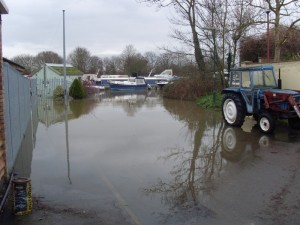Dredging isn’t a ‘silver bullet’ to solve the winter flooding crisis
 Dredging isn’t a ‘silver bullet’ to solve the winter flooding crisis. It can actually make downstream flooding worse, is usually bad news for the environment and would have delivered a staggering extra 550 million gallons of floodwater a day into the flood hit communities of the Lower Thames. That was the stark message taken to Parliament by Angling Trust Campaigns Chief Martin Salter on behalf of the Blueprint for Water coalition.
Dredging isn’t a ‘silver bullet’ to solve the winter flooding crisis. It can actually make downstream flooding worse, is usually bad news for the environment and would have delivered a staggering extra 550 million gallons of floodwater a day into the flood hit communities of the Lower Thames. That was the stark message taken to Parliament by Angling Trust Campaigns Chief Martin Salter on behalf of the Blueprint for Water coalition.
The Environment Food and Rural Affairs Select Committee held a special hearing on the flooding which has rocked parts of Britain this winter. The RSPB’s Rob Cunningham and the Angling Trust’s Martin Salter answered questions from the committee on behalf of the Blueprint for Water coalition. They emphasised how land management practices, such as farming, should be modified to reduce the run off of soil and water and how floodwater needs to be better stored higher up the catchment to reduce the risk of flooding further downstream. The Chartered Institution of Water and Environmental Management’s (CIWEM) Martin Whiting also gave evidence, providing a technical assessment of where and how dredging may be one component of a package of measures, while emphasising the need to improve management of water on a whole catchment basis.
On 14 February, CIWEM published a report, endorsed by the Blueprint for Water coalition. The report – Floods and Dredging, a Reality Check – suggested solely relying on dredging can even make some communities more vulnerable to the risk of flooding. The report calls for leadership from the government in promoting sustainable measures across whole catchments to minimise flood risks, rather than politically-motivated, knee-jerk reactions. It also warns against using the artificially reclaimed landscape on the Somerset Levels, which requires regular dredging, as a template for the management of the natural rivers of Britain.
Martin Salter told the committee: “Wholesale dredging for flood risk management, rather than for navigation, stopped on the Thames in the early 1980s because the key engineers concluded it was a complete waste of time and money. They discovered that the river bed has barely changed over centuries, exemplified by the fact that they were pulling out Bronze Age remains in the dredging buckets when they dug into hard bed. Like many rivers the Thames is by and large self scouring and an extreme flood event will move more silt than the dredgers ever can.
Furthermore, estimates from the Environment Agency’s Flood Risk Management team revealed that had the upper and middle Thames and its tributaries been subject to the wholesale dredging some have called for, there would have been at least a 10% increase in floodwater hitting the Lower Thames communities around Old Windsor, Wraysbury and Staines where I grew up. This equates to an extra 550 million gallons of floodwater a day at the peak of the flood delivering a minimum of 6 inches to a foot more flooding to already hard hit communities.” Mr Salter added: “Politicians need to stop looking for quick fix solutions and recognise that extreme weather will create more flooding and that this will require a stronger, not weaker Environment Agency, more restrictions on building on the floodplain and real incentives to improve upland farming practices to slow down the flow of water throughout the catchment.” Mr Salter described the recent attacks on the Environment Agency by government ministers as "a low point in British politics. "
This entry was posted in
News. Bookmark the
permalink.


